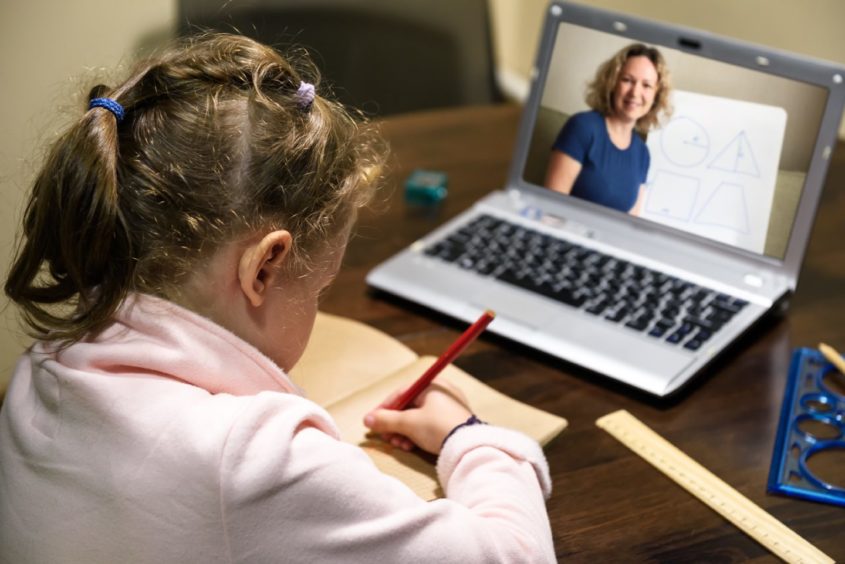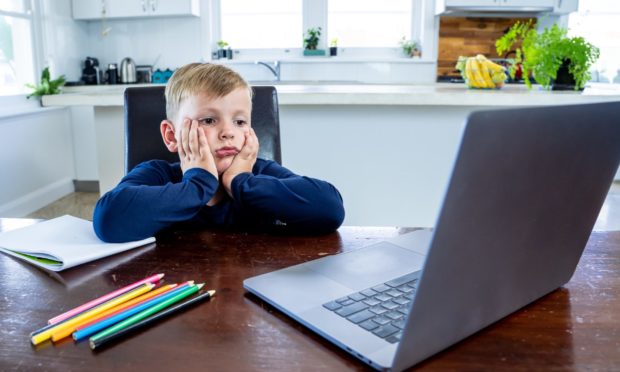“How are the kids?’ It’s a question being asked with ever greater frequency and urgency, from one parent to another.
The longer lockdown has gone on, the clearer it has become that real and potentially lasting damage is being done to our young. In our concern for those at one end of the age and health spectrum – the elderly, the infirm, adults with underlying conditions that leave them especially vulnerable to the consequences of Covid – we risk sacrificing the wellbeing of those at the other.
I can see it in my own children. When the first lockdown kicked in last March it was something of a jape. There was work to be done – and we made sure it was – but in truth normal life was on pause as society focused its panicked attention on limiting and fighting the impact of the pandemic. Their days were filled with Netflix, video games and Facetiming friends – even the occasional book.
This time it’s different. As schools and universities have remained closed and relative isolation has become the norm, the thrill has gone. My kids are for the most part listless, ratty and bored – theirs is a life in limbo. The eldest girl should be in a flat in Glasgow, working steadily towards her degree, gossiping with her friends in pubs and clubs, flirting with boys, working her part-time job and blowing the proceeds on inappropriate outfits and passing fads.
The middle girl should have sat her Standard Grades last year and now be preparing for her Highers, continuing her development into the fiery menace that we suspect will end either in great wealth or in prison (perhaps both). The youngest should be whooping round the park with her gang of pals, grumbling about having to attend her various weeknight clubs, dressing up for birthday parties and days out.
Tom Peterkin: The hell of home learning is not just about irritable parents, there are the children to consider
Like other parents we have tried to keep their education motoring along while managing our own demanding jobs, providing breakfast, lunch and dinner and staying on top of the housework. We spend an increasing amount of time attempting to keep their spirits up, joking them along, talking them through the low periods, playing family games – charades has been tried, as has Monopoly. We’re now onto family jigsaws, God help us.

Setting the young back on their axis
In homes across the UK, a million plates are being spun like this by people operating at the limits of their endurance. Some parents have been furloughed and are anxious about what the future holds.
Some have already lost their jobs. Many are doing their best, within the rules, to look after elderly relatives too: keeping their fridges stocked, worrying about the absence of even a small amount of exercise, worried more that if they leave the house they are in danger from the virus. Others have lost loved ones without even being able to visit them in hospitals or care homes.
But as the vaccine is rolled out this year and our shrunken world begins to reinflate, the most important challenge will be setting the young back on their axis. I don’t think that, as a society or as a polity, we have done this particularly well over the past 12 months, or that we show signs of stepping up
You’ll have your own experiences and anecdotes about the impact of lockdown. Of shy kids retreating further into their shell and sociable ones struggling to cope with confinement; of academically able pupils not being challenged enough, while non-academic children fall further and further behind their peers; of some schools providing organised and effective home-learning, while others seem to have all but given up; of some individual teachers going the extra mile, while others appear to do as little as possible.
We know that over the past year or so almost all children have missed out on key building blocks towards adult life – the forming of relationships, the vital experience of preparing for and then sitting exams, the transformation into teenagehood or early adult life, all the lost milestones and opportunities.
Loneliness, lack of structure, even lack of exposure to daylight, leaves scars. There is uncertainty about what happens next, whether the traditional paths of progress are still open, whether there will be jobs and if so what kind.
Surveys show that young people are struggling more than any other age group with psychological wellbeing. Childhood depression and anxiety rates are up, in a health system that is not geared to cope. There is a distinct sense that policymakers have not fully grasped the importance of this, and scale of effort that is now required.
Listen up: the kids are not alright.

